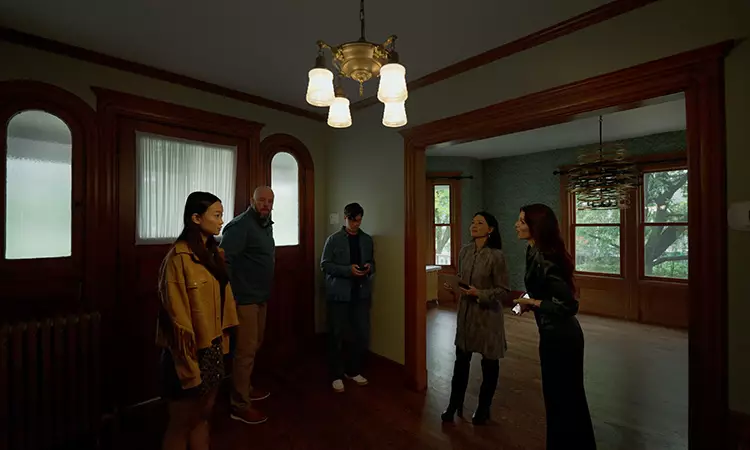In the cinematic landscape of experimental storytelling, few directors have pushed boundaries like Steven Soderbergh. In his latest work, *Presence*, he reunites with screenwriter David Koepp, crafting a supernatural drama unlike any typical ghost narrative. The film tells its story through the mutable lens of a ghost, who serves as an unseen observer of familial interactions, reflecting a uniquely contemporary take on relationships and sorrow. At first glance, the film may evoke comparisons to *Paranormal Activity* or *Personal Shopper*, blending elements of horror with emotive themes, particularly grief. Yet, upon deeper contemplation, *Presence* resonates more closely with the introspective spirit of Japanese ghost tales, where the supernatural serves as a mirror reflecting societal anxieties, especially regarding parental fears in our tech-dominated society.
At the heart of *Presence* lies an ordinary family grappling with profound loss and emotional complexity. Lucy Liu and Chris Sullivan portray the parents navigating the turbulent waters of raising teenagers amidst the backdrop of their daughter’s grief over a lost friend. Callina Liang’s performance as Chloe stands out, encapsulating the rawness of adolescent sorrow while contending with other familial expectations. Meanwhile, Tyler, played by Eddy Maday, shifts between his identity as a star athlete and the emotional turbulence that comes with adolescence. Their dynamic is punctuated by the intrusion of Tyler’s friend Ryan and a psychic couple led by Natalie Woolams-Torres, whose presence adds layers to the unfolding drama. The film excels in portraying the intimate, often chaotic moments within the family unit, creating a visceral connection between characters and audience.
Soderbergh’s visual style further enriches the narrative. Utilizing elegantly composed long takes, the camera weaves through the newly acquired home, drawing viewers into moments of both tenderness and tension. The cinematography intriguingly employs GenZ’s penchant for wide-shot selfies, subtly critiquing the pervasive and often toxic influence of social media in modern life. This creative choice sparks a conversation about the darker implications of digital surveillance – how our lives are not only documented but scrutinized through the lens of ever-watchful technology. In an era where privacy is an illusion and family sanctuaries can be breached by the flicker of a screen, the film taps into a collective anxiety, where the comfort of home becomes a site of anxiety and observation.
While *Presence* ultimately builds toward a plot twist involving manipulation and power, it does not rely solely on complexity. Instead, the film finds strength in its quieter moments, where sorrow unfurls between father and daughter, suggesting the lingering shadows of grief. This emotional weight enhances the tension and dread that permeates the film, captivating audiences with its acknowledgment of both supernatural elements and human vulnerabilities. Soderbergh’s *Presence* showcases not just an exploration of the specter hovering over a family, but also the haunting echoes of technological omnipresence that shapes contemporary existence, making it an insightful commentary on modern life and its discontents.

